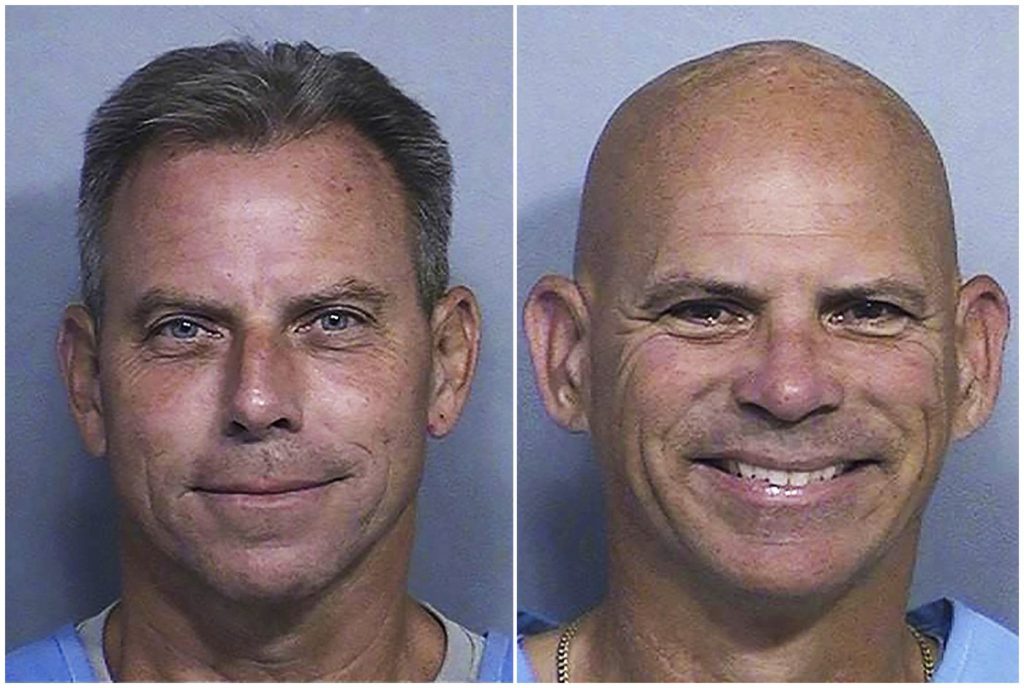LOS ANGELES (AP) - Erik and Lyle Menendez, now in their mid-50s, have spent more time in prison than they did as free individuals. Their lives took a drastic turn over 35 years ago when they were arrested for the double murder of their parents, Jose and Kitty Menendez, in their upscale Beverly Hills home. Both brothers were sentenced to life imprisonment without the possibility of parole after being convicted at ages 18 and 21.
The prosecution painted the brothers as greedy perpetrators seeking a multimillion-dollar inheritance, while the defense claimed they acted in self-defense after enduring severe physical and sexual abuse from their father for years. Recently, Former District Attorney George Gascón urged the court to reconsider their sentences, providing an opportunity for the Menendez brothers to secure a reduced sentence that might enable their release.
Gascón's resentencing petition sheds light on the brothers’ behavior during their incarceration, emphasizing their efforts toward personal growth and rehabilitation. Throughout their imprisonment, both brothers have completed various educational and self-help programs, receiving commendations from prison staff who noted their positive conduct. A memo from Correctional Lieutenant Victor Cortes highlighted Lyle's "exceptional conduct" and "trustworthiness," while Corrections Officer D. Rosario referred to Erik as a "rehabilitated man" dedicated to helping others.
Despite the support for resentencing presented by Gascón's office, Nathan Hochman, Gascón's successor, has opposed the motion and submitted a request to withdraw the petition. During recent court hearings, prosecutors argued against any changes to the brothers' sentences, citing their past crimes.
Prison disciplinary records reveal that Lyle has maintained a clean record, not having engaged in any fights throughout his 30 years in prison; he was even transferred to a Special Needs Yard due to his nonviolent nature. Erik, on the other hand, has had a more turbulent record with two reported fights among eight violations, including possession of contraband such as a cellphone.
In their early years of imprisonment, Erik completed programs focused on empathy, anger management, and domestic violence, while Lyle took on leadership roles, representing prisoners in Northern California prisons and working to foster a positive environment at Mule Creek State Prison. Lyle's efforts over a decade were acknowledged by Associate Warden B. Holmes in a supporting memo.
Both brothers have founded programs aimed at assisting fellow inmates. Erik co-established a support group for elderly and disabled inmates and has led multiple educational initiatives, including the Alternatives to Violence workshop. Meanwhile, Lyle initiated a program addressing childhood trauma among inmates, leading a mentorship group for youth serving life sentences without parole, demonstrating his commitment to helping others navigate their rehabilitation journeys.
One of Lyle's notable achievements is the Green Space Project at the Richard J. Donovan Correctional Facility, launched in 2018. This initiative aims to beautify prison environments, reducing violence and promoting rehabilitation. Inspired by the Norwegian prison model, the project has garnered participation from over 100 inmates, raising significant funds for its implementation.
In terms of education, both brothers have pursued higher studies while incarcerated. Lyle graduated with a bachelor's degree in sociology from the University of California, Irvine, and is currently enrolled in a master's program focusing on urban planning and recidivism. Erik is slated to graduate with his sociology degree in June 2024 and has previously earned associate degrees in sociology and social behavioral science.
The Menendez brothers have taken an approach to their imprisonment that seeks to transform their earlier lives into a narrative of redemption and positive contribution. With the ongoing discussions regarding their sentences, the contrasting perspectives from prosecutors and supporters highlight the complexity of their case and the potential for change within the justice system.










